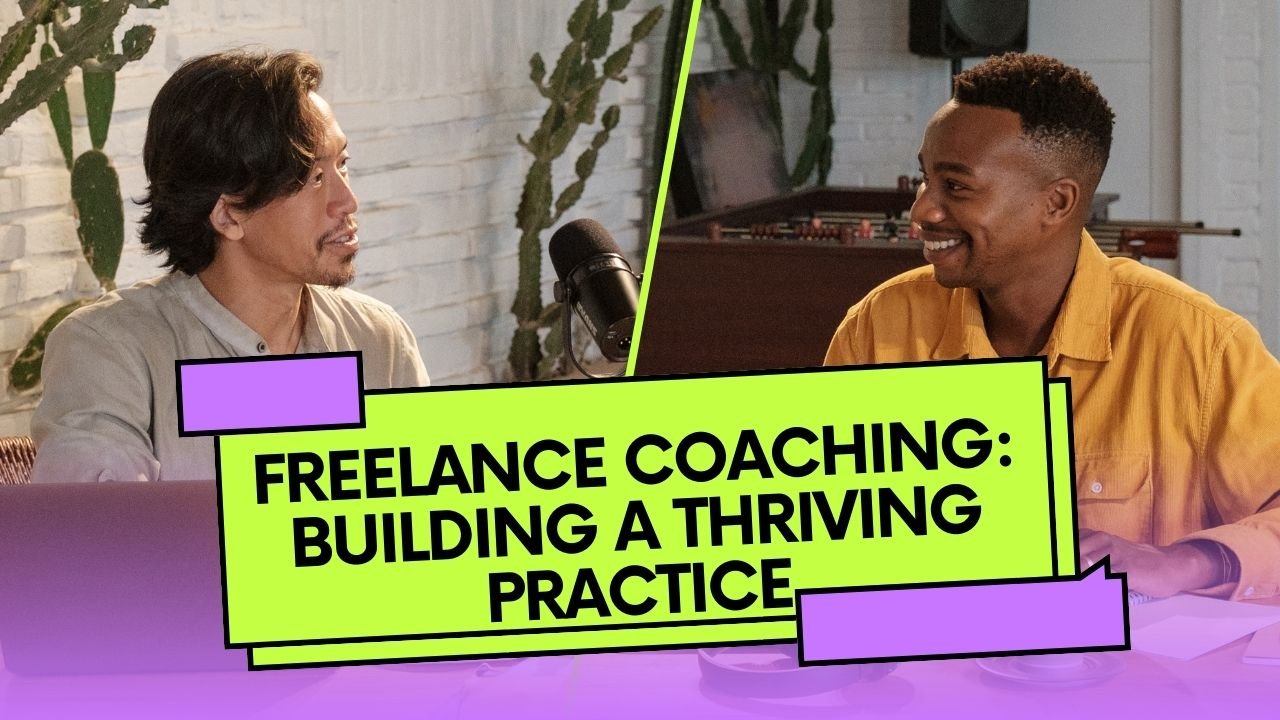Freelance coaching is a rewarding and fulfilling way to use your skills and experience to help others achieve their personal and professional goals. Whether you want to work as a life coach, a business coach, a career coach, or any other type of coach, you can find plenty of freelance coaching jobs on various online platforms or websites.
However, freelance coaching also comes with some challenges and responsibilities. You need to build and grow your practice, attract and retain clients, deliver high-quality service, and manage your finances and taxes.
How can you build a thriving practice as a freelance coach? In this article, we will share some tips and strategies that can help you succeed as a freelance coach.
What Do You Need to Start Freelance Coaching?
To start freelance coaching, you need to have some basic qualifications and equipment. Here are some of them:
- A passion and expertise in coaching. You need to have a passion and expertise in coaching that allows you to inspire, motivate, and guide others towards their desired outcomes. You also need to have a niche or a specialty that sets you apart from other coaches.
- A training or certification in coaching or a related field. You need to have a training or certification in coaching or a related field, such as psychology, counseling, or education. You can also get a degree or certification from an accredited institution or organization to boost your credibility and skills.
- A portfolio and testimonials of your previous work. You need to have a portfolio and testimonials of your previous work that showcase your skills and results in coaching. You can also create a website or a social media account that displays your portfolio and testimonials.
- A computer with a reliable internet connection. You need to have a computer with a reliable internet connection that allows you to access various online platforms and tools for coaching, such as email, calendar, video call, invoice, project management, or collaboration tools.
- A freelance platform or website. You need to find and apply for freelance coaching jobs on various online platforms or websites that connect coaches with clients. Some examples are Upwork.com, Fiverr.com, or Lifecoach-directory.org.uk
How to Find Freelance Coaching Jobs?
There are many ways to find freelance coaching jobs online or offline. Here are some of them:
- Browse through freelance platforms or websites. You can search for freelance coaching jobs by using keywords, filters, categories, or ratings. You can also create a profile and portfolio to showcase your qualifications and experience.
- Bid on projects or contests. You can bid on projects or contests that match your skills and budget. You can also send proposals or samples to clients to convince them to hire you.
- Apply for hourly or fixed-price jobs. You can choose between hourly or fixed-price jobs depending on your preference and availability. Hourly jobs pay you by the hour while fixed-price jobs pay you by the project.
- Build your reputation and network. You can increase your chances of getting hired by delivering quality work, getting positive feedback, earning badges, or getting referrals from previous clients or followers.
- Market yourself offline. You can also market yourself offline by creating flyers, business cards, brochures, or posters that advertise your services. You can also join local groups, clubs, or associations that are related to coaching.
How to Deliver High-Quality Service as a Freelance Coach?
To deliver high-quality service as a freelance coach, you need to follow some steps and strategies that cover every aspect of each project. Here are some of them:
- Understand the client’s needs and expectations. You need to understand the client’s needs and expectations for each project, such as the goal, challenge, timeline, budget, communication method, feedback process, and evaluation method. You also need to communicate with the client regularly and update them on your progress.
- Research and plan the project details. You need to research and plan the project details by studying the client’s background, situation, personality, preferences, and learning style. You also need to create a strategy and an action plan for each project.
- Create and deliver the project content. You need to create and deliver the project content by using your creativity, skills, and tools. You also need to follow the client’s instructions and specifications, such as the format, the style, the length, and the quality.
- Evaluate and follow up the project outcomes. You need to evaluate and follow up the project outcomes by collecting feedback from the client, the coachee, or the analytics. You also need to thank the client and partners, and send invoices and reports.
How to Improve Your Freelance Coaching Skills?
To improve your freelance coaching skills, you need to practice and learn constantly. Here are some tips:
- Improve your communication and interpersonal skills. You need to communicate effectively and interact positively with your clients, coachees, partners, and influencers. You need to listen actively, speak clearly, ask questions, give feedback, and show empathy.
- Learn new coaching trends and techniques. You need to learn new coaching trends and techniques that can enhance your creativity and efficiency. You can also use various online tools or apps that can help you with coaching, such as Zoom, Google Calendar, or Coach.me.
- Keep up with the latest developments and opportunities in your niche. You need to keep up with the latest developments and opportunities in your niche that may affect your work or career. You can also update your portfolio and testimonials accordingly.
- Seek feedback and improvement opportunities. You need to seek feedback from your clients, peers, or mentors on how to improve your work quality and performance. You can also look for improvement opportunities by taking on new challenges or projects that require different skills or knowledge.
Conclusion
Freelance coaching is a rewarding and fulfilling way to use your skills and experience to help others achieve their personal and professional goals. However, it also requires some qualifications, equipment, and strategies to succeed. By following the tips and strategies in this article, you can build a thriving practice as a freelance coach.




